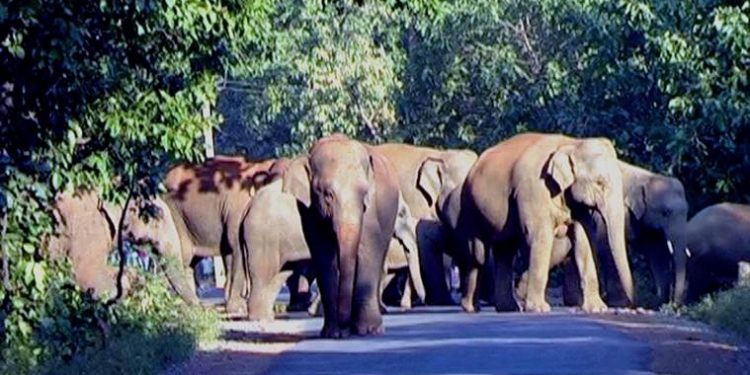Bhubaneswar: The National Green Tribunal has asked the Odisha government to notify 14 elephant corridors in the state within the next two months. The order was passed Tuesday, realising a long-standing demand of elephant conservationists.
This development comes after years of exercise for setting up such corridors and subsequent litigations by the ‘Wildlife Society of Odisha demanding notified paths for the jumbos in the state. This is needed to safeguard the paths taken by the tuskers during their normal movement and also to prevent man-elephant conflict.
In an order passed by the Eastern Zonal bench of NGT, judicial member B Amit Sthalekar and expert member Saibal Dasgupta have asked for notification of the 14 corridors identified by ‘Asian Nature Conservation Foundation’.
“In our view, since the action plan has been submitted and 14 elephant corridors have been identified by the State Respondents, Government of Odisha, we, therefore, dispose of this original application with the direction to the Respondent No.1 (state government) to notify the elephant corridors in terms as identified by the Asian Nature Conservation Foundation (ANCF), within a period of two months from today in accordance with law,” the written order of the NGT said.
Wildlife conservationist Biswajit Mohanty, through his NGO ‘Wildlife Society of Odisha’, had moved the NGT. He argued that Odisha hosted the highest number of elephants in eastern India as per the 2015 census. It was said that elephant corridors should be prescribed and notified as ecologically sensitive zones under Section 3 of the Environment (Protection) Act, 1986.
The NGT order comes in the wake of rising elephant deaths in Odisha since 2001. As against 33 elephant deaths per year on an average between 1990 and 2000, 46 deaths were reported annually on an average between 2001 and 2010. The figure has gone up to 76 deaths annually since 2010.
Shankar Prasad Pani, NGT lawyer told Orissa POST that recognition of elephant corridors could pave the way for declaration of these areas as sensitive zones similar to other protected areas which can prevent starting and operations of industries and other environment-threatening units.






































